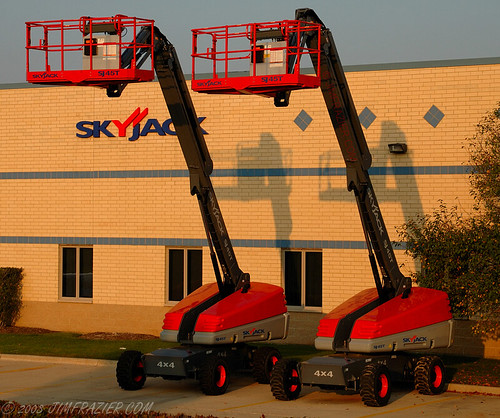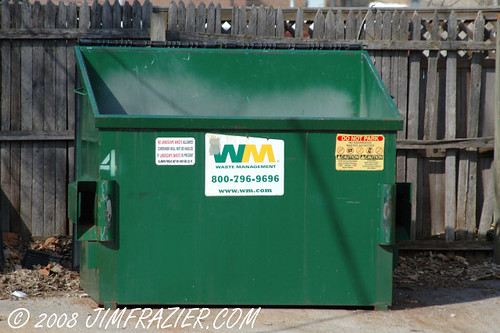
I came across an interesting item when I was browsing New Jersey's sales and use tax rules today. It's regarding the leasing and rental of tangible personal property.
First of all, to recap the general rule in most states: the rental of tangible personal property is a taxable sale. The lessor must charge sales tax on the rental charge of the TPP. But this also allows the lessor to buy the equipment "for resale" so he doesn't have to pay sales tax on his purchase. All he has to do is provide a resale certificate to his vendor. Done.
Now this particular glitch is one I noticed because it was clearly spelled out for New Jersey. But it probably applies in the other states as well.
The lessor buys equipment to rent. He pays no sales tax. He charges his customer tax. But what happens when there's an operator involved?
Now we have to figure out if the real transaction is the hiring of the operator, with the equipment becoming incidental to the real purchase of the operator's services. Or are we still renting a machine and the operator is just there because we don't know what levers to pull?
There are a couple of different ways that the states handle this:
1. If the operator has control over how the machine is used, it's no longer a taxable rental (with some variations on what is meant by control).
2. If the cost of the operator is more than the cost of the rental, it's no longer a taxable rental.
3. If there's an operator, it's no longer a taxable rental. Period.
Here's the glitch: Let's say you routinely provide your equipment with an operator. And based on the way the state's law works, the rental becomes non-taxable. Then you really can't be purchasing the equipment with a resale certificate anymore, because you're really not buying for resale. You're not charging sales tax anymore because you're not making taxable sales. You're really using your equipment, or rather, your operator is.
So, if you're the lessor, you should have had your vendors charge you tax (or you should have paid use tax) when you bought the equipment you rent with an operator. Which means, if this is new to you, you owe the state a bucketload of money.
Interesting huh? I wonder how many leasing companies do this; Or have gotten busted on this. And I wonder how many auditors even check for this.
This illustrates a larger issue. Many sales tax exemptions are based on how you will use the purchase (or not use it, in the case of the resale exemption). But if you change your mind later, you lose that exemption. How many of you are paying attention to this? Here's another example where sellers get burned all of the time.
Hope I didn't ruin any weekends.
Well, OK, yeah, I kinda do. (grin)
The Sales Tax Guy
http://salestaxguy.blogspot.com
See the disclaimer - this is for education only. Research these issues thoroughly before making decisions. Remember: there are details we haven't discussed, and every state is different. Here's more information
Get these articles in your inbox - subscribe at http://salestaxguy.blogspot.com
Don't forget our upcoming seminars and webinars.
http://www.salestax-usetax.com/
Picture note: the image above is hosted on Flickr. If you'd like to see more, click on the photo.



